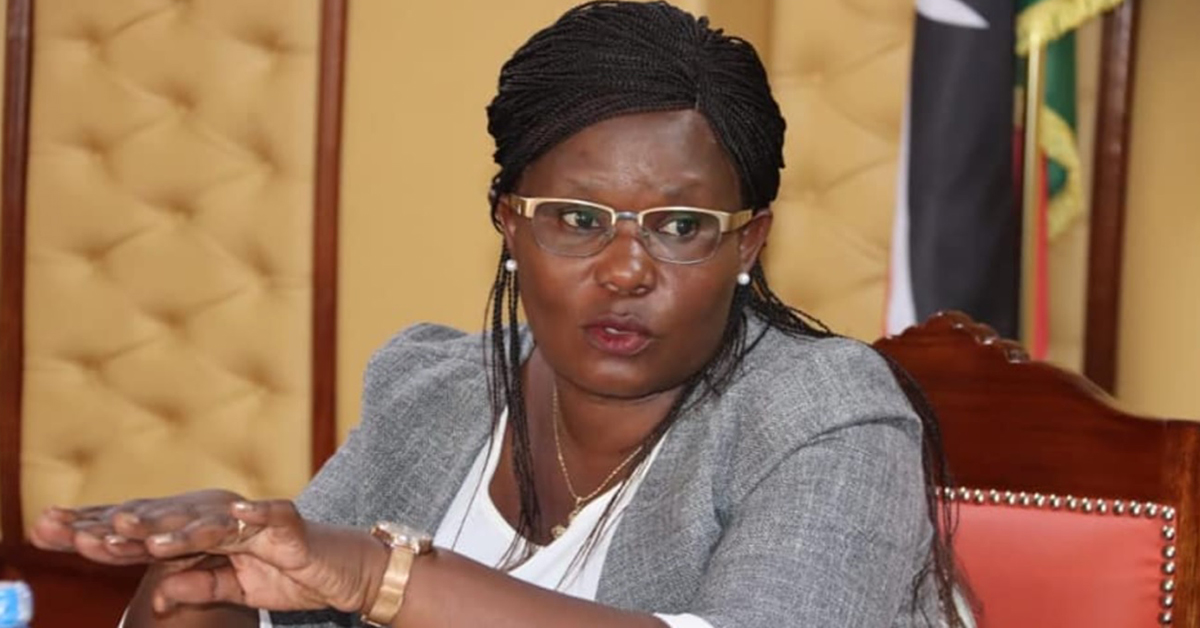Impeachment: Senate Plenary to decide Mwangaza’s fate

Meru County Governor Kawira Mwangaza. File photo
The fate of Meru County Governor Kawira Mwangaza hangs in the balance as the Senate is set to convene to discuss her impeachment.
After the rejection of a motion proposing the formation of a special committee, Senators have opted for a plenary session to address the grounds for her removal from office.
This marks the third time Ms Mwangaza faces impeachment, after two(2) failed impeachments from the county level, with serious allegations of abuse of office, gross misconduct, and constitutional violations.
On August 8, 2024, the Meru County Assembly through a motion led by the Deputy Majority Leader Zipporah Kinya, impeached Governor Mwangaza by a significant majority vote of 49 out of 69 MCAs.
The accusations raised against Mwangaza included abuse of office, gross misconduct, and Constitutional violations.
Her case was then rested under the powers of the senate of Kenya to determine her fate.
The imposing Senate chamber buzzed with anticipation as senators gathered to address the weighty matter with regard to her impeachment.
The air was thick with tension, and the fate of an entire county hangs in the balance.
Ms Mwangaza, a formidable political figure, has previously weathered two previous impeachment attempts in the senate and two at the county level, but this third round in the senate it looks to be the most decisive.
Initially, there was a push to form an 11-member special committee to investigate the grounds for her removal.
However, in a surprising twist, the senate rejected this approach. Most senators argued that the matter was too weighty for a select committee.
Instead, they opted for a full-blown plenary session—a decision that would expose every detail to public scrutiny.
The Senate floor crackled with tension. Majority Leader and Kericho Senator Aaron Cheruiyot, a seasoned politician with a penchant for eloquence, pleaded the case for the committee approach.
He emphasized the committee’s effectiveness to cross-examine witnesses, dissect evidence, and arrive at a nuanced verdict. But his words fell on deaf ears.
The Senate Speaker, Amason Kingi, stood firm: “Plenary it shall be.”
Nairobi Senator Edwin Sifuna, a legal luminary, weighed in.
He acknowledged the urgency of the matter but expressed reservations about the Senate’s recess.
Could they summon all members for a full session? The stakes were high—the eyes of Kenyans were upon them.
For that matter, the Senate Clerk will issue invitations to the concerned parties for their appearance.
Parties involved must submit their responses to the Senate Clerk’s office by Saturday at 5pm.
The Senate will now commence the hearing on Monday next week, following the circulation of relevant documents among senators and proceed for voting on Tuesday.
Ms Mwangaza’s fate now rests on the Senate’s decision, which will determine whether she remains in office or faces removal.
The Senate’s deliberations on her impeachment highlight the gravity of the situation and the need for thorough examination.
The plenary session ensures transparency and public scrutiny as the Senate weighs the evidence and considers the implications of removing a county governor from office.

Be the First to Comment